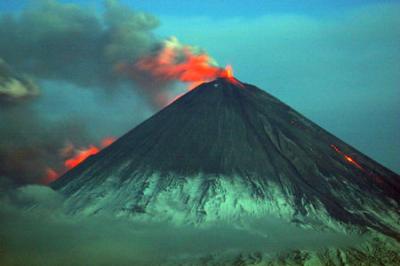But we don't really know. There have been times when the carbon dioxide in the atmosphere was 10X what it is today, but we were only slightly warmed, and there were times when it was lower than today, and we were covered in ice. What we do know is that things are pretty good now, and we don't want a planet covered in ice, or to live in a greenhouse.
Estimates are that about 2.4 billion years ago, earth was one supercontinent covered in ice and with very little oxygen. Only only single-celled bacteria lived. Gradually that began to change. We can probably thank volcanoes for, you guessed it, more CO2, which set off a daisy chain of warming and more oxygen and then plants.
The new results come from age dating of volcanic rocks in southern Africa, and they show that the global glaciation occurred 200 million years prior to what was previously believed. The latest occurrence of Snowball Earth was approximately 600 million years ago, which was followed by a significant increase in the Earth’s oxygen content. The study shows that the emergence of oxygen took place at a time when most of the Earth’s landmasses were gathered in a single supercontinent. Paleomagnetic studies show this continent extended at the equator and was largely covered by volcanic lava rocks.
Initially, the increase in oxygen in the atmosphere was not a steady process, but characterized by quite substantial fluctuations, as shown by the researchers’ analyses. The researchers link the oxygen fluctuations to a very unstable climate, which may have arisen due to the volcanic activity on the large supercontinent at the equator.
Citation: Ashley P. Gumsleya, Kevin R. Chamberlainb, Wouter Bleeker, Ulf Söderlund, Michiel O. de Kock, Emilie R. Larsson, and Andrey Bekker, Timing and tempo of the Great Oxidation Event, PNAS doi:
 10.1073/pnas.1608824114
10.1073/pnas.1608824114




Comments